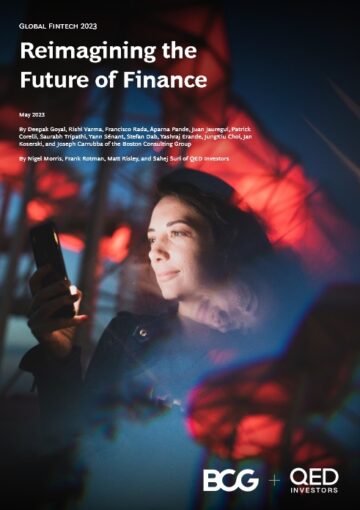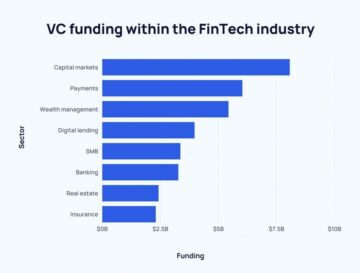RMI | Samuel Huestis | Jan 30, 2023

Image: Unsplash/israel palacio
Cryptocurrency has an energy consumption problem. Bitcoin alone is estimated to consume 127 terawatt-hours (TWh) a year — more than many countries, including Norway.
- Decarbonizing the crypto industry thus remains essential to achieving a safe climate future. Yet, while RMI is proud to have played a role in initial decarbonization efforts in the crypto industry, moving forward, we will focus on decarbonizing the grid rather than crypto transactions. In this article, we reflect on the state of the crypto industry: what work has been done so far, the challenges of decarbonizing crypto, and how RMI will continue to pursue this goal as part of our larger effort to decarbonize global supply chains.
See: Canadian Bitcoin Mining 2022 Recap and Outlook
- Progress to date:
- Proof of work energy usage: Lawmakers are increasingly concerned about the energy usage and environmental impact of Bitcoin mining. Bitcoin’s proof-of-work mining algorithm requires large amounts of energy.
- In contrast, Ethereum’s proof-of-stake consensus mechanism is far less energy-intensive and has reduced its electrical usage by over 99.9 percent.
- To reduce the emissions impact of the crypto industry, the “Change the Code, Not the Climate” campaign by Greenpeace and the Environmental Working Group aims to motivate Bitcoin to move away from proof-of-work to a less energy-intensive consensus mechanism.
- This would also mitigate Bitcoin’s significant e-waste problem.
- Price volatility: The price volatility associated with Bitcoin and other cryptocurrencies is a cause for concern as it affects the use of clean energy.
- When Bitcoin prices are high, miners may use clean electricity. But when prices drop, they seek the cheapest electricity, which may not be clean. Miners spend a majority of their income on electricity.
- There are also concerns about relying on Bitcoin miners for demand response on power grids, as they may not prioritize limiting power usage when prices are high, putting increased pressure on the grid.
See: Bitcoin Mining Council Protest ‘Misleading’ Letter Sent to EPA
- Electricity procurement: Bitcoin mining has a significant carbon footprint, and it is crucial that it be powered by new renewable energy sources rather than drawing from existing ones.
- Bitcoin miners must contract directly with renewable energy providers to drive further renewable energy generation.
- To ensure that the energy used is clean, sustainable, and additional, the Renewable Energy (RE) Emissions Score has been developed by RMI. This score allows companies, including Bitcoin miners, to make quantifiable claims about renewable energy use and investment and prioritize investment in high emissions areas and low-cost renewable projects.
Continue to the full article –> here
 The National Crowdfunding & Fintech Association (NCFA Canada) is a financial innovation ecosystem that provides education, market intelligence, industry stewardship, networking and funding opportunities and services to thousands of community members and works closely with industry, government, partners and affiliates to create a vibrant and innovative fintech and funding industry in Canada. Decentralized and distributed, NCFA is engaged with global stakeholders and helps incubate projects and investment in fintech, alternative finance, crowdfunding, peer-to-peer finance, payments, digital assets and tokens, blockchain, cryptocurrency, regtech, and insurtech sectors. Join Canada’s Fintech & Funding Community today FREE! Or become a contributing member and get perks. For more information, please visit: www.ncfacanada.org
The National Crowdfunding & Fintech Association (NCFA Canada) is a financial innovation ecosystem that provides education, market intelligence, industry stewardship, networking and funding opportunities and services to thousands of community members and works closely with industry, government, partners and affiliates to create a vibrant and innovative fintech and funding industry in Canada. Decentralized and distributed, NCFA is engaged with global stakeholders and helps incubate projects and investment in fintech, alternative finance, crowdfunding, peer-to-peer finance, payments, digital assets and tokens, blockchain, cryptocurrency, regtech, and insurtech sectors. Join Canada’s Fintech & Funding Community today FREE! Or become a contributing member and get perks. For more information, please visit: www.ncfacanada.org
Want to get insider access to some of the most innovative advances happening in #fintech. Register for #FFCON23 and hear from global thought leaders what’s next! Click below for Open Access tickets to all virtual programming and on-demand content from FFCON23.Support NCFA by Following us on Twitter! |
Related Posts
- SEO Powered Content & PR Distribution. Get Amplified Today.
- Platoblockchain. Web3 Metaverse Intelligence. Knowledge Amplified. Access Here.
- Source: https://ncfacanada.org/decarbonizing-cryptos-energy-consumption-problem/
- :is
- $UP
- 100
- 2018
- 2022
- 28
- 9
- a
- About
- access
- achieving
- Additional
- advances
- affiliates
- aims
- algorithm
- All
- allows
- alone
- alternative
- alternative finance
- amounts
- and
- April
- ARE
- areas
- article
- AS
- Assets
- associated
- At
- BE
- become
- below
- Bitcoin
- Bitcoin Miners
- Bitcoin mining
- Bitcoin prices
- blockchain
- by
- cache
- Campaign
- Canada
- Canadian
- carbon
- carbon footprint
- Cause
- challenges
- change
- cheapest
- claims
- clean energy
- click
- Climate
- closely
- code
- COM
- community
- Companies
- Concern
- concerned
- Concerns
- Consensus
- consensus mechanism
- consume
- consumption
- content
- continue
- contract
- contrast
- Council
- countries
- create
- Crowdfunding
- crypto
- Crypto Industry
- crypto transactions
- cryptocurrencies
- cryptocurrency
- Date
- decarbonization
- decentralized
- Demand
- demand response
- developed
- digital
- Digital Assets
- directly
- distributed
- drawing
- drive
- Drop
- ecosystem
- Education
- effort
- electricity
- Emissions
- energy
- Energy Consumption
- energy use
- engaged
- ensure
- environmental
- EPA
- essential
- estimated
- Ether (ETH)
- ethereum
- events
- existing
- far
- finance
- financial
- financial innovation
- fintech
- Focus
- following
- Footprint
- For
- Forbes
- Forward
- from
- full
- funding
- funding opportunities
- further
- generation
- get
- Global
- goal
- Government
- Greenpeace
- Grid
- Group
- Happening
- Have
- hear
- helps
- High
- How
- http
- HTTPS
- Impact
- in
- Including
- Income
- increased
- increasingly
- industry
- information
- Innovation
- innovative
- Insider
- Insurtech
- Intelligence
- investment
- Israel
- IT
- ITS
- Jan
- join
- jpg
- large
- larger
- lawmakers
- leaders
- letter
- live
- Live Events
- low-cost
- Majority
- make
- many
- March
- Market
- max-width
- May..
- mechanism
- member
- Members
- Miners
- Mining
- Mitigate
- more
- most
- moving
- networking
- New
- Newsletter
- Norway
- of
- on
- On-Demand
- open
- opportunities
- Other
- Outlook
- part
- partners
- payments
- peer to peer
- percent
- perks
- plato
- Plato Data Intelligence
- PlatoData
- played
- please
- power
- powered
- pressure
- price
- Prices
- Prioritize
- Problem
- Programming
- projects
- Proof-of-Stake
- Proof-of-Work
- protest
- proud
- providers
- provides
- Putting
- rather
- RE
- recap
- reduce
- Reduced
- reflect
- register
- Regtech
- remains
- Renewable
- renewable energy
- requires
- response
- Role
- s
- safe
- score
- Sectors
- Seek
- Services
- sign
- significant
- So
- so Far
- some
- spend
- stakeholders
- State
- Stewardship
- supply
- sustainable
- that
- The
- The State
- their
- thought
- thought leaders
- thousands
- tickets
- to
- today
- Tokens
- Transactions
- true
- Unsplash
- us
- Usage
- use
- vibrant
- Virtual
- Visit
- Volatility
- What
- which
- while
- will
- with
- Work
- working
- Working Group
- works
- would
- zephyrnet














